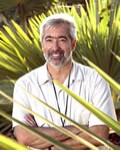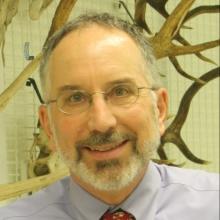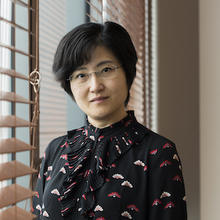
|
Andrew A. Biewener (On Leave, Spring 2024)
Charles P. Lyman Professor of Biology
(Not Accepting Graduate Students for 2024-2025)
|

|
Colleen Cavanaugh
Edward C. Jeffrey Professor of Biology
(Not Accepting Graduate Students)
|

|
Andrew Davies
Assistant Professor
(Not Accepting Graduate Students for 2024-2025)
|

|
Charles C. Davis (On Leave, Academic Year 2023-2024)
Professor of Organismic and Evolutionary Biology
Curator of Vascular Plants in the Harvard University Herbaria
|

|
Benjamin L. de Bivort
Professor of Organismic and Evolutionary Biology
Director of Graduate Studies
(Not Accepting Graduate Students for 2024-2025)
|

|
Michael M. Desai (On Leave, Academic Year 2023-2024)
Fisher Professor of Natural History
Professor of Organismic and Evolutionary Biology
|

|
Scott V. Edwards
Professor of Organismic and Evolutionary Biology
Curator of Ornithology in the Museum of Comparative Zoology
Alexander Agassiz Professor of Zoology in the Museum of Comparative Zoology, Chair of the Department of Organismic and Evolutionary Biology, Senior Advisor to the Dean on Faculty Development
|

|
Cassandra G. Extavour (On Leave, Fall 2023)
Timken Professor of Organismic and Evolutionary Biology and of Molecular Cellular Biology
Howard Hughes Medical Institute Investigator
(Not Accepting Graduate Students for 2024-2025)
|

|
Brian D. Farrell
Monique and Philip Lehner Professor of Latin America
Professor of Biology
Curator of Entomology in the Museum of Comparative Zoology
|

|
William (Ned) Friedman
Arnold Professor of Organismic and Evolutionary Biology
Director of the Arnold Arboretum
Faculty Fellow of the Arnold Arboretum
|
|
|
Peter R. Girguis (On Leave, Academic Year 2023-2024)
Professor of Organismic and Evolutionary Biology
(Not Accepting Graduate Students for 2024-2025)
|

|
Gonzalo Giribet (On Leave, Fall 2023)
Professor of Organismic and Evolutionary Biology
Director of the Museum of Comparative Zoology
Alexander Agassiz Professor of Zoology in the Museum of Comparative Zoology, Curator of Invertebrate Zoology in the Museum of Comparative Zoology, Harvard College Professor
(Not Accepting Graduate Students for 2024-2025)
|

|
David A. Haig
George Putnam Professor of Organismic and Evolutionary Biology
Associate of Dudley House
|

|
James Hanken (On Leave, Fall 2023)
Professor of Biology
Curator of Herpetology in the Museum of Comparative Zoology
Alexander Agassiz Professor of Zoology in the Museum of Comparative Zoology
(Not Accepting Graduate Students for 2024-2025)
|

|
Daniel L. Hartl
Higgins Professor of Biology
Professor in the Department of Immunology and Infectious Diseases
(Not Accepting Graduate Students for 2024-2025)
|

|
Hopi E. Hoekstra
Edgerley Family Dean of the Faculty of Arts and Sciences
C.Y. Chan Professor of Arts and Sciences, Professor of Organismic and Evolutionary Biology and of Molecular and Cellular Biology, Harvard College Professor, Alexander Agassiz Professor of Zoology in the Museum of Comparative Zoology
Howard Hughes Medical Institute Investigator
(Not Accepting Graduate Students)
|

|
Noel Michele Holbrook
Charles Bullard Professor of Forestry
Professor of Organismic and Evolutionary Biology
Director of the Harvard Forest
Faculty Fellow of the Arnold Arboretum
|

|
Robin Hopkins
John L. Loeb Associate Professor of the Natural Sciences
Faculty Fellow of the Arnold Arboretum
|

|
Elena Kramer
Bussey Professor of Organismic and Evolutionary Biology
Harvard College Professor
Interim Director, Harvard University Herbaria
|

|
George V. Lauder
Henry Bryant Bigelow Professor of Ichthyology
Professor of Biology
Curator of Ichthyology in the Museum of Comparative Zoology
(Not Accepting Graduate Students for 2024-2025)
|

|
L. Mahadevan
Lola England de Valpine Professor of Applied Mathematics, of Organismic and Evolutionary Biology, and of Physics
Area Dean for Applied Mathematics
|

|
James Mallet (On Leave, Academic Year 2023-2024)
Professor in Residence in Organismic and Evolutionary Biology
(Not Accepting Graduate Students for 2024-2025)
|

|
Paul R. Moorcroft
Professor of Organismic and Evolutionary Biology
|
|
|
Martin A. Nowak
Professor of Mathematics and Biology
|

|
Bence P. Ölveczky (On Leave, Fall 2023)
Professor of Organismic and Evolutionary Biology
|

|
Javier Ortega-Hernández
Assistant Professor of Organismic and Evolutionary Biology
Curator of Invertebrate Paleontology in the Museum of Comparative Zoology
|

|
Naomi E. Pierce
Sidney A. and John H. Hessel Professor of Biology
Curator of Lepidoptera in the Museum of Comparative Zoology
Senior Fellow of the Society of Fellows
|

|
Stephanie E. Pierce
Thomas D. Cabot Associate Professor of Organismic and Evolutionary Biology
Curator of Vertebrate Paleontology and Interim Curator of Mammalogy in the Museum of Comparative Zoology
|

|
Pardis Sabeti (On Leave, Academic Year 2023-2024)
Professor of Organismic and Evolutionary Biology
Professor in the Department of Immunology and Infectious Diseases
Howard Hughes Medical Institute Investigator
|

|
Mansi Srivastava
Professor of Organismic and Evolutionary Biology
Curator of Invertebrate Zoology in the Museum of Comparative Zoology
|

|
Benton Taylor
Assistant Professor
|

|
John Wakeley (On Leave, Academic Year 2023-2024)
Professor of Organismic and Evolutionary Biology
(Not Accepting Graduate Students for 2024-2025)
|

|
Yun Zhang
Professor of Organismic and Evolutionary Biology
|
|
|
|
|
|
|

































